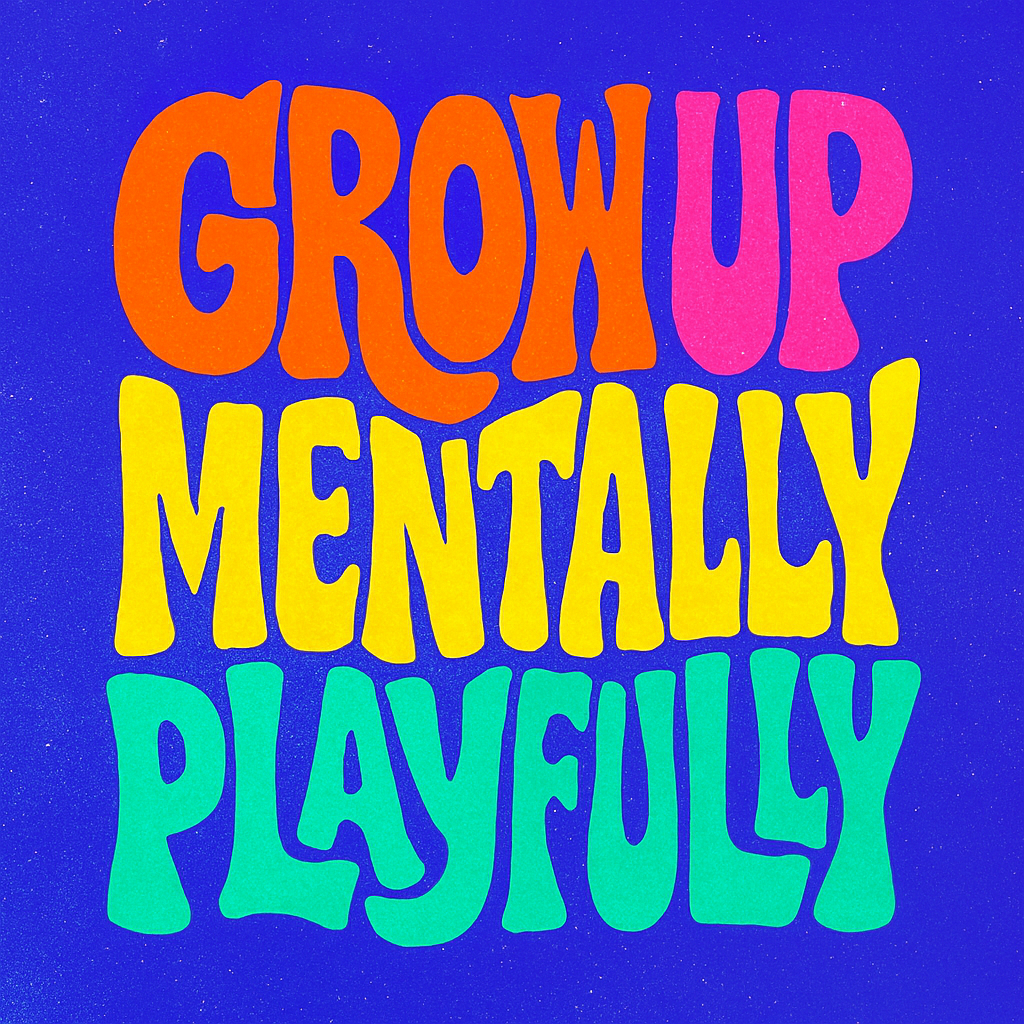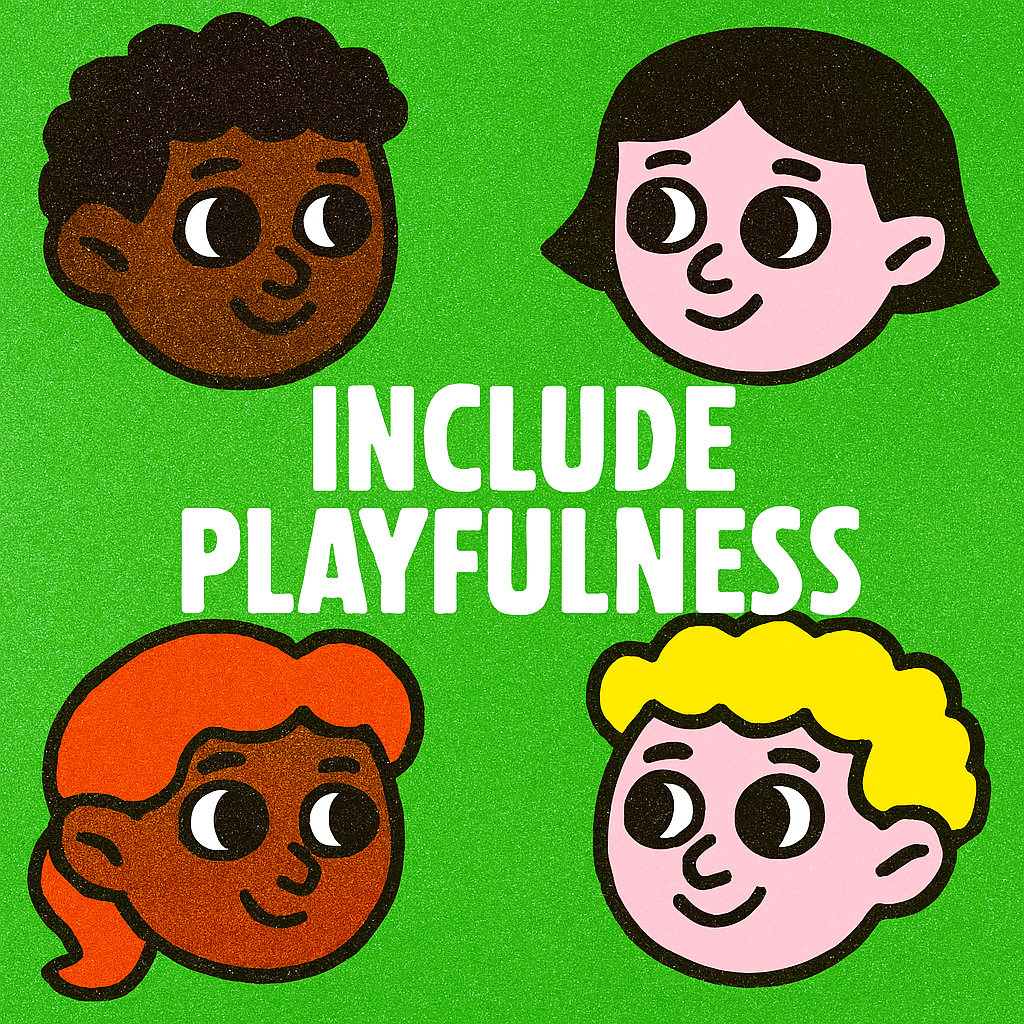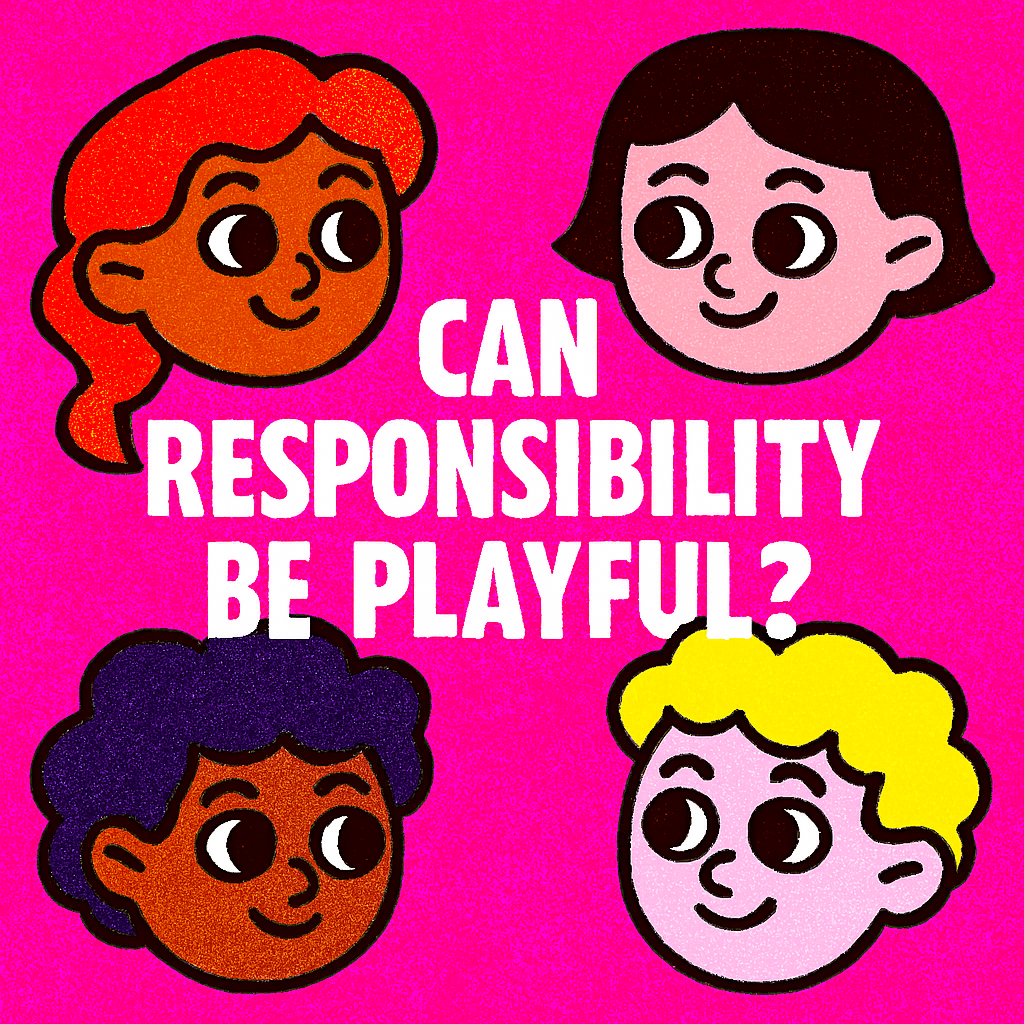Is It OK To Never Grow Up Mentally As Long As You Are Responsible
Never Grow Up Mentally
Rethinking Maturity Without Losing Wonder
Adulthood is often defined by restraint, seriousness, and emotional control. These traits are seen as the hallmarks of maturity. But what if that definition is incomplete?
Many adults quietly preserve a childlike mindset—curious, playful, emotionally open. They don’t reject responsibility. They simply refuse to abandon imagination. This raises a deeper question: can mental youthfulness coexist with adult accountability?
Psychology, education, and leadership studies increasingly suggest that childlike traits can enhance—not hinder—adult life. They support creativity, empathy, and resilience even if you find friendship in a teddy bear. They help us adapt, connect, and recover.
Childlike Vs Childish – Decoding The Emotional Spectrum
The difference between childlike and childish is subtle but critical. Childlike traits include imagination, openness, and emotional honesty. They enrich adult life and deepen relationships.
Childish traits, by contrast, involve impulsivity, avoidance, and emotional volatility. They often reflect a refusal to grow, not a refusal to conform.
Adults who retain childlike qualities tend to be more creative and empathetic. They approach life with symbolic clarity and emotional depth. Childish adults may struggle with boundaries and accountability.
Society often conflates these two modes. Playfulness is mistaken for irresponsibility. Vulnerability is seen as weakness. But emotional openness is not immaturity—it’s a form of intelligence.
Understanding this distinction allows us to reclaim the strengths of childlike thinking. It helps us honor emotional literacy without excusing emotional chaos.
| Trait Type | Core Qualities | Social Impact | Psychological Outcome |
|---|---|---|---|
| Childlike | Imaginative, open, emotionally honest | Builds trust and creativity | Enhances resilience and joy |
| Childish | Impulsive, avoidant, reactive | Undermines relationships and trust | Increases stress and instability |
Psychological Resilience – How Playfulness Builds Strength
Playfulness is often dismissed as frivolous, but it plays a critical role in emotional resilience. Adults who retain childlike traits tend to recover more quickly from stress and trauma. They use imagination to reframe adversity, humor to defuse tension, and symbolic thinking to process complex emotions.
This isn’t regression—it’s adaptation. Mental youthfulness allows for emotional elasticity. It keeps the nervous system from locking into chronic stress responses. It invites the body to breathe, the mind to wander, and the heart to remain open.
In trauma therapy, play is reintroduced to help adults reconnect with safety and agency. In leadership, playfulness signals confidence and creativity. In parenting, it fosters trust and emotional literacy.
Resilience isn’t about stoicism—it’s about flexibility. And flexibility is a childlike trait. The ability to imagine alternatives is what keeps us from despair. The ability to laugh in the dark is what keeps us human.
Playfulness is not a luxury—it’s a survival skill. It’s not a sign of weakness—it’s a sign of strength. And it belongs in every adult’s emotional toolkit, especially those who carry responsibility.
| Resilience Factor | Childlike Trait | Practical Benefit |
|---|---|---|
| Emotional elasticity | Imagination | Reframes stress as challenge |
| Social bonding | Humor | Builds trust and connection |
| Cognitive flexibility | Curiosity | Adapts to change and uncertainty |
Symbolic Thinking – Why Metaphor Matters In Adult Life
Symbolic thinking is a hallmark of childlike cognition. Children naturally use metaphor to understand the world—turning emotions into colors, fears into monsters, and dreams into stories. Adults often lose this capacity, replacing it with literalism and abstraction.
But metaphor is not childish. It’s essential. It allows us to process complexity, express emotion, and communicate meaning. In literature, therapy, and design, symbolic language helps us navigate ambiguity and contradiction.
Adults who retain symbolic fluency tend to be more emotionally intelligent. They can name what others feel but cannot say. They can translate chaos into clarity. They can build bridges between logic and emotion.
Symbolic thinking also supports ethical reasoning. It helps us understand consequences, empathize with others, and imagine alternative futures. It’s not just poetic—it’s practical.
Reclaiming metaphor is part of reclaiming mental youthfulness. It’s a way to stay emotionally alive without being emotionally unstable. It’s a way to think deeply without becoming rigid.
| Domain | Symbolic Function | Adult Benefit |
|---|---|---|
| Therapy | Emotional processing | Unlocks trauma and grief |
| Leadership | Vision and storytelling | Inspires teams and culture |
| Ethics | Moral imagination | Supports empathy and foresight |

Emotional Literacy – The Case For Staying Soft
Emotional literacy is the ability to recognize, name, and regulate feelings. It’s often taught to children but neglected in adult life. Many grown-ups are expected to suppress emotion, perform stoicism, and avoid vulnerability.
But staying soft is not the same as staying weak. Adults who remain emotionally open are often better at conflict resolution, collaboration, and caregiving. They can sense nuance, respond with empathy, and adapt to emotional shifts.
Childlike traits like honesty, curiosity, and emotional expressiveness support emotional literacy. They help us stay connected to ourselves and others. They prevent emotional numbness and relational breakdown.
In workplaces, emotionally literate adults build healthier teams. In families, they foster trust and psychological safety. In communities, they model compassion and accountability.
Emotional literacy is not a phase—it’s a lifelong skill. And childlike softness is one of its strongest foundations.
| Emotional Skill | Childlike Trait | Adult Application |
|---|---|---|
| Naming emotions | Honesty | Improves communication |
| Regulating emotions | Curiosity | Reduces reactivity |
| Empathizing with others | Openness | Builds relational trust |
Creative Intelligence – Why Imagination Is A Cognitive Asset
Imagination is often treated as a childish indulgence, but it’s a core component of adult intelligence. It allows us to simulate outcomes, generate solutions, and envision possibilities beyond the immediate.
Adults who retain imaginative capacity tend to be better problem solvers. They can think laterally, adapt quickly, and innovate under pressure. In business, imagination drives strategy. In science, it fuels discovery. In relationships, it deepens empathy.
Childlike imagination is not about fantasy—it’s about symbolic flexibility. It allows us to hold multiple truths, navigate ambiguity, and reframe conflict. It’s a form of cognitive agility that supports emotional and intellectual growth.
Suppressing imagination in adulthood leads to rigidity. It narrows perception and limits emotional range. But when imagination is cultivated, it becomes a tool for resilience, leadership, and ethical reasoning.
Creative intelligence is not a phase—it’s a lifelong resource. And childlike thinking is its foundation.
| Cognitive Function | Imaginative Trait | Adult Benefit |
|---|---|---|
| Scenario planning | Symbolic flexibility | Improves decision-making |
| Innovation | Lateral thinking | Fuels creativity and strategy |
| Empathy | Narrative imagination | Enhances relational depth |
Social Adaptability – How Play Supports Connection
Play is not just a solo activity—it’s a social language. Children use play to bond, negotiate, and explore boundaries. Adults can do the same, but often forget how.
Social adaptability depends on emotional flexibility, humor, and symbolic exchange. These are childlike traits that support adult relationships. They help us navigate conflict, build trust, and foster inclusion.
In workplaces, playful adults are often better collaborators. They defuse tension, invite creativity, and model psychological safety. In families, play supports attachment and emotional literacy. In communities, it builds cohesion and resilience.
Play is not unserious—it’s a form of social intelligence. It allows us to connect without dominance, express without aggression, and lead without rigidity.
Adults who retain playfulness are often more emotionally available. They can shift roles, adapt tone, and respond to complexity with grace. This isn’t immaturity—it’s mastery.
| Social Skill | Playful Trait | Relational Impact |
|---|---|---|
| Conflict resolution | Humor | Reduces defensiveness |
| Collaboration | Flexibility | Enhances teamwork |
| Inclusion | Symbolic exchange | Builds trust and belonging |
Ethical Imagination – Reclaiming Moral Play
Ethical reasoning is often framed as a rigid process—rules, consequences, and logic. But moral imagination is just as important. It allows us to empathize, envision alternatives, and act with symbolic clarity.
Children often explore ethics through play. They simulate justice, fairness, and care. Adults can do the same, but it requires emotional openness and imaginative fluency.
Moral play is not about avoiding accountability. It’s about deepening it. It allows us to ask not just “what’s right,” but “what’s possible.” It helps us move beyond punishment toward restoration.
Adults who retain ethical imagination tend to be more inclusive and adaptive. They can hold complexity, honor difference, and respond with compassion. This is not softness—it’s strength.
Reclaiming moral play means reclaiming emotional depth. It means treating ethics as a living process, not a static code. And it begins with childlike thinking.
| Ethical Skill | Imaginative Trait | Adult Application |
|---|---|---|
| Empathy | Narrative simulation | Supports restorative justice |
| Foresight | Symbolic reasoning | Anticipates consequences |
| Inclusion | Emotional openness | Honors diversity and nuance |
Curiosity As Discipline – Rethinking Mental Focus
Curiosity is often seen as a distraction from discipline. But in reality, it can be the foundation of it. Adults who remain mentally curious tend to be more engaged, more adaptive, and more committed to learning.
Childlike curiosity isn’t chaotic—it’s structured by emotional relevance. It drives inquiry, fuels persistence, and deepens understanding. It’s not about chasing novelty. It’s about staying emotionally connected to what matters.
In education, curiosity supports lifelong learning. In science, it drives exploration. In relationships, it fosters empathy and attentiveness. Suppressing curiosity leads to stagnation. Cultivating it leads to growth.
Responsible adults don’t need to abandon curiosity. They need to integrate it. When curiosity is paired with accountability, it becomes a form of discipline. It keeps the mind alive and the heart engaged.
| Domain | Curious Trait | Adult Benefit |
|---|---|---|
| Education | Emotional relevance | Deepens engagement and retention |
| Leadership | Inquiry mindset | Improves decision-making |
| Relationships | Attentiveness | Strengthens empathy and connection |

Boundaries And Play – Structuring Emotional Freedom
Play without boundaries becomes chaos. But boundaries without play become rigidity. Adults who remain mentally youthful must learn to balance emotional openness with structure.
Childlike traits like spontaneity and imagination thrive within safe containers. These containers—emotional boundaries, time structures, relational agreements—allow play to flourish without harm.
In therapy, structured play helps adults process trauma. In parenting, boundaries support emotional safety. In teams, clear roles allow creativity to emerge. The key is not to suppress play, but to guide it.
Responsible adults can be playful without being reckless. They can express emotion without overwhelming others. They can explore without destabilizing. This is not immaturity—it’s emotional architecture.
Boundaries don’t kill play. They protect it. And childlike adults who understand this can model some of the healthiest forms of emotional freedom.
| Structure Type | Role In Play | Emotional Outcome |
|---|---|---|
| Time limits | Contain spontaneity | Prevent overwhelm |
| Relational agreements | Define safety | Build trust |
| Emotional boundaries | Guide expression | Support regulation |
Mental Flexibility – Navigating Complexity With Ease
Mental flexibility is the ability to shift perspectives, adapt to change, and tolerate ambiguity. It’s often associated with childlike cognition, but it’s essential for adult functioning.
Rigid thinking leads to conflict, burnout, and isolation. Flexible thinking supports collaboration, innovation, and resilience. Adults who retain childlike mental agility tend to be more emotionally intelligent and socially adaptive.
This flexibility is not about indecision. It’s about responsiveness. It allows adults to adjust tone, reframe problems, and engage with complexity without collapsing.
In leadership, mental flexibility supports strategic pivots. In relationships, it prevents escalation. In learning, it accelerates growth. And in emotional life, it protects against despair.
Childlike mental flexibility is not a weakness. It’s a strength. And it’s one of the most underappreciated forms of adult intelligence.
| Flexibility Domain | Childlike Trait | Adult Function |
|---|---|---|
| Emotional regulation | Perspective shifting | Reduces reactivity |
| Strategic thinking | Scenario play | Improves adaptability |
| Conflict resolution | Role fluidity | Enhances empathy and repair |
Emotional Maturity – Redefining What Grown-Up Means
Emotional maturity is often equated with restraint, detachment, and control. But these traits can mask avoidance, rigidity, and emotional suppression. True maturity involves emotional presence, not emotional absence.
Adults who retain childlike emotional openness are often more attuned to their inner world. They can name their feelings, express them responsibly, and respond to others with empathy. This isn’t indulgence—it’s regulation.
Childlike traits like honesty, curiosity, and vulnerability support emotional growth. They allow adults to engage with complexity without collapsing into defensiveness or denial. They make space for repair, reflection, and relational depth.
Maturity is not about being unfeeling. It’s about being emotionally literate. It’s about holding space for contradiction without losing clarity.
Adults who suppress emotion often struggle with intimacy, creativity, and resilience. They may appear composed but lack depth. By contrast, emotionally present adults—those who remain mentally youthful—can lead, love, and learn with integrity.
Reframing emotional maturity means honoring softness, not punishing it. It means treating emotional intelligence as a strength, not a liability. And it begins with childlike clarity.
| Maturity Trait | Childlike Quality | Adult Expression |
|---|---|---|
| Emotional presence | Vulnerability | Builds trust and intimacy |
| Regulation | Curiosity | Supports reflection and repair |
| Integrity | Honesty | Strengthens leadership and connection |
Learning Agility – Why Mental Youthfulness Fuels Growth
Learning agility is the ability to absorb new information, adapt to change, and integrate feedback. It’s often framed as a professional skill, but its roots are deeply emotional and symbolic.
Children learn through play, exploration, and emotional relevance. Adults who retain these traits tend to be more agile learners. They don’t just memorize—they metabolize. They connect ideas, challenge assumptions, and evolve.
Mental youthfulness supports this process. It keeps the mind flexible, the heart engaged, and the ego quiet. It allows adults to ask questions without shame, make mistakes without collapse, and grow without defensiveness.
In workplaces, learning agility drives innovation. In relationships, it supports repair. In personal development, it fuels transformation. Suppressing childlike traits can lead to stagnation. Cultivating them leads to evolution.
Agile learners are not immature—they’re emotionally intelligent. They know that growth requires openness, not perfection. And they treat learning as a lifelong practice, not a performance.
| Learning Skill | Childlike Trait | Adult Benefit |
|---|---|---|
| Absorption | Emotional relevance | Deepens retention and insight |
| Adaptation | Playful exploration | Enhances flexibility and resilience |
| Integration | Symbolic connection | Supports transformation and growth |
Responsibility And Wonder – Why They’re Not Opposites
Responsibility is often framed as the end of wonder. Adults are expected to trade imagination for control, curiosity for caution, and emotional openness for strategic restraint. But this trade-off is not inevitable. It’s cultural.
In many societies, responsibility is defined by productivity, predictability, and emotional containment. These traits are useful—but they’re not the whole picture. They don’t account for symbolic intelligence, emotional literacy, or creative resilience.
Childlike traits like wonder, playfulness, and emotional honesty can enhance responsibility. They allow adults to approach challenges with flexibility, connect with others more deeply, and adapt to complexity with grace. They don’t undermine accountability—they enrich it.
A responsible adult who retains wonder is not naive. They’re emotionally agile. They can hold tension without collapse, lead without domination, and care without burnout. They understand that responsibility is not just about outcomes—it’s about presence.
In leadership, wonder supports vision. In caregiving, it supports empathy. In education, it supports engagement. These are not distractions from responsibility—they’re its emotional infrastructure.
Adults who suppress wonder often become brittle. They lose the capacity to imagine alternatives, to connect symbolically, and to feel deeply. This leads to burnout, disconnection, and emotional rigidity.
By contrast, adults who preserve mental youthfulness tend to be more resilient, more relational, and more adaptive. They don’t reject responsibility—they reframe it. They treat it as a creative act, not a burden.
Responsibility and wonder are not opposites. They’re partners. And childlike thinking is what binds them.
| Responsibility Trait | Childlike Quality | Adult Benefit |
|---|---|---|
| Emotional presence | Wonder | Enhances empathy and connection |
| Strategic clarity | Imagination | Supports vision and adaptability |
| Relational depth | Playfulness | Builds trust and resilience |

Cultural Bias – How Society Punishes Emotional Openness
Across many cultures, emotional openness is treated with suspicion. Adults who express vulnerability, joy, or symbolic depth are often labeled as unserious, unstable, or immature. This bias is not psychological—it’s ideological.
Western norms of adulthood emphasize control, detachment, and performance. These traits are rewarded in workplaces, institutions, and media. But they often come at the cost of emotional health and relational integrity.
Childlike traits—curiosity, softness, symbolic fluency—are dismissed as childish. They’re seen as incompatible with leadership, professionalism, or authority. This leads to emotional suppression, relational breakdown, and cultural stagnation.
Adults who resist this bias often face social penalties. They’re excluded from decision-making, dismissed in conflict, or pathologized in therapy. Their emotional intelligence is treated as a liability, not a strength.
But this bias is beginning to crack. In trauma-informed education, emotionally expressive adults are seen as safer. In inclusive leadership, symbolic clarity is valued. In ecological design, playfulness is a tool for engagement.
Reframing emotional openness as intelligence—not immaturity—is a cultural shift. It requires new language, new models, and new symbols. It requires honoring childlike traits as adult assets.
This isn’t about rejecting seriousness. It’s about expanding it. It’s about making space for emotional depth, symbolic resonance, and relational truth.
| Cultural Bias | Impact On Adults | Reframed Value |
|---|---|---|
| Emotional suppression | Burnout and disconnection | Emotional literacy and resilience |
| Symbolic dismissal | Loss of creativity | Vision and ethical imagination |
| Vulnerability stigma | Isolation and rigidity | Trust-building and repair capacity |
Ecological Intelligence – Learning From Childlike Systems
Nature doesn’t grow in straight lines. It spirals, adapts, and plays. Childlike thinking mirrors this ecological intelligence. It’s nonlinear, emotionally responsive, and symbolically rich.
Children often engage with nature through metaphor. A puddle becomes a portal. A frog becomes a friend. This isn’t fantasy—it’s relational fluency. It reflects a deep intuitive understanding of ecological systems.
Adults who retain this mindset tend to be more ecologically literate. They see patterns, relationships, and symbolic meaning. They don’t just analyze—they empathize. They treat ecosystems as living stories, not mechanical systems.
In regenerative design, childlike thinking supports innovation. In conservation, it supports emotional engagement. In climate education, it supports symbolic clarity. These are not childish applications—they’re deeply adult.
Suppressing childlike ecological intelligence leads to fragmentation. It turns nature into data, relationships into metrics, and care into compliance. But when childlike thinking is honored, ecological systems become emotionally legible.
This legibility supports stewardship, not just strategy. It allows adults to care with depth, act with integrity, and design with empathy. It’s not about innocence—it’s about insight.
Childlike ecological intelligence is not a phase. It’s a form of wisdom. And it belongs in every adult’s toolkit.
| Ecological Trait | Childlike Expression | Adult Application |
|---|---|---|
| Pattern recognition | Symbolic play | Supports regenerative design |
| Emotional engagement | Metaphor and story | Enhances conservation and education |
| Relational fluency | Empathy with nature | Deepens ecological stewardship |
Conclusion – Growing Up Without Growing Cold
Growing up doesn’t have to mean growing cold. It doesn’t have to mean abandoning imagination, suppressing emotion, or rejecting play. These traits are not childish—they’re human.
Adults who remain mentally youthful are not irresponsible. They’re emotionally intelligent, symbolically fluent, and relationally adaptive. They can lead, care, and create with depth.
The goal is not to glorify immaturity. It’s to challenge the assumption that maturity requires emotional detachment. It doesn’t. It requires emotional presence.
Mental youthfulness is not a liability. It’s a resource. And when paired with responsibility, it becomes a form of wisdom.
Join The Discussion – Staying Soft While Showing Up
Have you ever felt punished for being emotionally open as an adult? Do you find strength in play, imagination, or symbolic thinking—even when others call it immaturity?
#EmotionalLiteracy #SymbolicIntelligence #ChildlikeNotChildish #SoftnessIsStrength #ResponsibleWonder #PlayfulMaturity #ImaginationIsWisdom #GrowUpStayOpen #MentalYouthfulness #EcologicalResonance #EmotionalArchitecture #CuriosityAsDiscipline #BoundariesAndPlay #ResilientSoftness #AdultWithHeart








I agree with your point of view and found this very insightful.